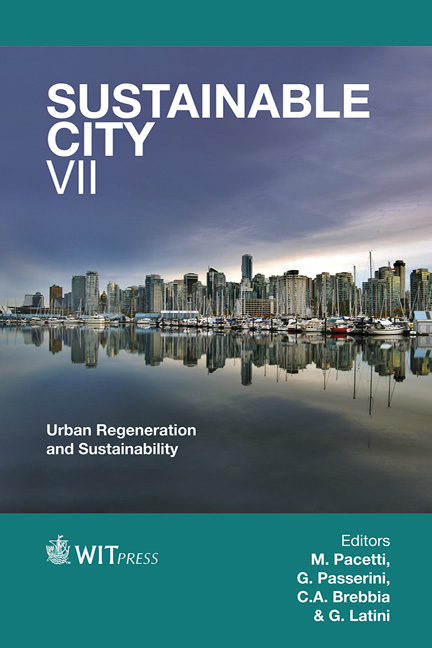Assessment Of Behavior Of Two-shelled Domes In Iranian Traditional Architecture: The Charbaq School, Isfahan, Iran
Price
Free (open access)
Transaction
Volume
155
Pages
11
Page Range
1223 - 1233
Published
2012
Size
2,280 kb
Paper DOI
10.2495/SC121022
Copyright
WIT Press
Author(s)
M. Ghasempourabadi, V. R. Mahmoudabadi Arani, O. Bahar, M. Mahdavinejad
Abstract
The eye-catching structure of domes is one of the most significant archetypes of the traditional architecture of Iran. Review of the merits of the architecture of Iranian monuments show that domes, which are the masterwork of traditional builders, are constructed in various shapes by various techniques in different periods over centuries. Two-shelled domes are the result of the technical evolution of traditional technology of historic architecture in the construction of regular domes. In an earlier historical age, many of the mosques of Iran, schools and building complexes were covered by single- or two-shelled domes. But, these domes are in urgent need of technical assessment: modeling, load transfer mechanisms, element characteristics, evaluation criteria, and shape effects. The aim of this paper is to explain how two-shelled domes behave in the structural systems of traditional architecture of Iran, how they bear and transfer various types of loadings and why the two-shelled dome is used instead of the one-shelled dome.
In this paper as a case study, the two-shelled dome of the Charbaq School of Isfahan constructed in the Safavid era has been selected. The dome is modeled in simulation software and then its behavior under vertical loadings, dead and live loads, horizontal loadings, and wind and earthquake loads are examined in detail. In this way, performance of the two-shelled dome during a variety of loading conditions is assessed. Extensive analysis shows that assessment of behavior of the mentioned two-shelled dome is essentially based on many different items such as modeling, parameter values, connection details, and general failure criteria and its behavior is far superior to the similar one-shelled dome with similar parameters.
Keywords
two-shelled dome, single shelled domes, traditional architecture of Iran, structural systems, Isfahan, Charbaq School, membrane behavior





